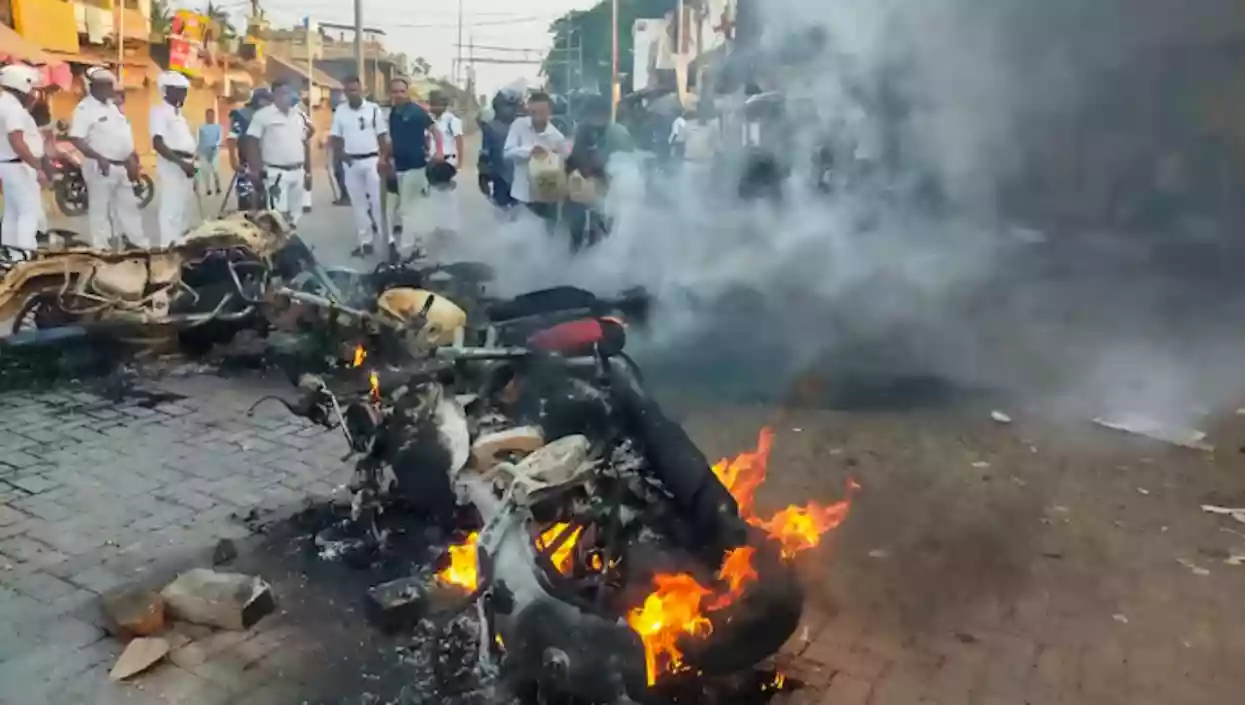.gif)
.gif)

An initial probe into the recent violent unrest in West Bengal over the amended Waqf law has revealed the alleged involvement of Bangladeshi miscreants, as per intelligence sources. The Union Home Ministry has been briefed about the suspected foreign link, further intensifying the political and security storm in the state.
The investigation has flagged a glaring failure by the Mamata Banerjee-led state government in monitoring intrusions across the international border, particularly in Murshidabad and South 24 Parganas — both districts that bore the brunt of the violence. The unrest has so far claimed three lives and left dozens injured.
Protests erupted following the passage of the Waqf law, which gives the government more oversight over Waqf properties. While officials assert the law aims at regulation and transparency, some groups see it as a direct threat to community-owned assets — fueling widespread protests, especially in Muslim-majority regions.
Murshidabad, which shares a porous border with Bangladesh and has a 66% Muslim population, became the epicenter. Shops were looted, police vehicles set ablaze, and homes vandalized in Suti and Samserganj. Reports indicate that many residents fled the area amid rising tensions and security lapses.
The violence spread to Bhangar in South 24 Parganas where protesters, led by the India Secular Front (ISF), clashed with police and torched vehicles after being stopped from marching towards Kolkata. The movement was allegedly infiltrated by troublemakers with cross-border links.
Governor CV Ananda Bose has sought a comprehensive report from the Bengal government. The Calcutta High Court has also intervened, ordering the deployment of central forces in vulnerable areas. Meanwhile, Chief Minister Mamata Banerjee has claimed that the Waqf law will not be implemented in Bengal and appealed to citizens to maintain peace.